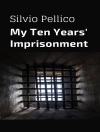Imagine the Great War ending early, in 1915, or 1916, or even 1917. Imagine round-table negotiations and a compromise peace, ending what seemed to be an unbreakable military stalemate. Had peace come in this way, perhaps there would have been no Communism, no Fascism, no Nazism, no Great Depression, and no Second World War. During the Great War, many urged such a peace.
Private Ryan and the Lost Peace is the story of one soldier who rebelled against the war and urged a mediated settlement. He happened to be Australian, but his could be the story of many an ‘everyman’ at the front. Private Ted Ryan, originally from Broken Hill, sent an angry letter to Britain’s famous anti-war politician, Ramsay Mac Donald, urging him to keep pushing for peace. Ryan denounced the war as the herding of men to a hideous ‘abattoir’ of industrialised killing! He blasted talk of fighting on to ’the knock-out blow’. Eventually, Ryan’s revolt landed him in four courts martial. He even received a death sentence. Were secret diplomatic deals prolonging the war? Were promising opportunities for peace callously rebuffed? From what we know now about the squashing of peace initiatives, Ted Ryan’s instincts were dead right. The Great War was a protracted catastrophe, unnecessarily prolonged. Those who rebelled against it – even in the trenches – deserve to have their story heard.
Over de auteur
Douglas Newton was Associate Professor of History at Western Sydney University, and has also taught history at Macquarie University and the Victoria University of Wellington. He lives in Australia.












